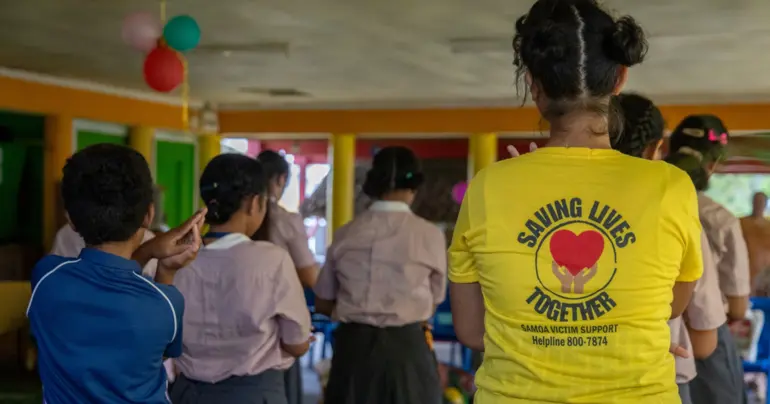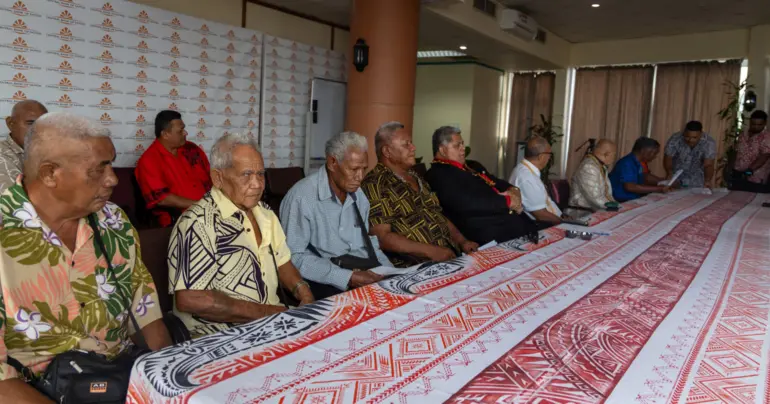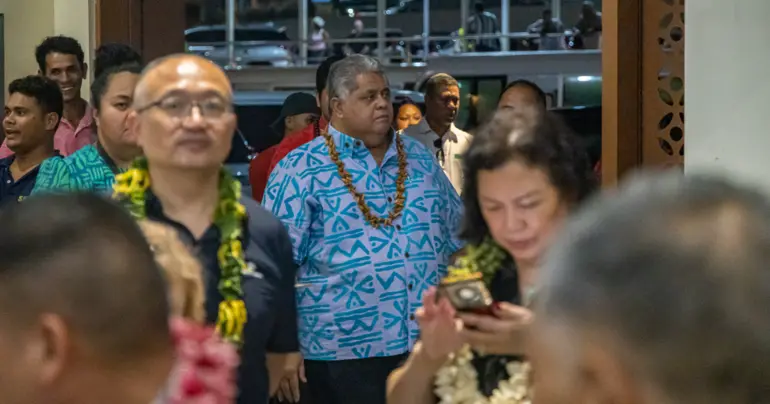People the crisis' unacknowledged authority
 By The Editorial Board
•
19 July 2021, 12:00AM
By The Editorial Board
•
19 July 2021, 12:00AM
The saga of the 9 April election appears to be close to reaching a crescendo with the first prelude to climax in the Court of Appeal as early as this week.
So far, this has been a struggle, of more than 100 days’ duration, that has been largely viewed through the lens of a conflict between a handful of the nation’s political elites about the outcome of an election.
The courts have noted it will be incumbent upon those whom it refers to as “constitutional actors”, or the nation’s political powers to reach a final decision.
As we reach the possibility of a conclusion two things are also becoming increasingly clear: that the Court of Appeal, though it should, nay must, be the final source of authority on matters relating to the upholding of democratic law, the resolution of this dispute may not be so simple.
The court may not have the last word - at least not immediately.
But we are also seeing growing signs that the people of Samoa are no longer content to play a passive role as this power crisis stretches beyond the 100 day mark.
And while there may be no formal legal role for them in resolving this dispute, by speaking out, everyday Samoans, churches and community groups could play an important role in reminding those with the formal power to make decisions to whom it is they really answer and in setting the boundaries for what is just and acceptable behaviour and what is not.
It is our view that the formal legal aspect of this constitutional dispute, argued in Friday’s hearing of the Court of Appeal, made clear what had been apparent for some time: that the court’s will intervene to reassert democratic rule in Samoa.
On the strength of the argument put forward by the Samoa Law Society and Robert Lithgow Q.C., it is clear that ordering that Parliament convenes as soon as possible - a process which will involve a change of Government - is the only legally justifiable means for the court to proceed.
To our mind, the arguments advanced by the otherside were not grounded in constitutional law, but with the goal of meeting a desired predetermined political end: the maintenance of Tuilaepa Dr. Sailele Malielegaoi’s reign.
What they produced in response to a clear cut case for convening Parliament immediately amounted to little more than abstractions, over complications and downright wish thinking about what our founding argument actually says.
What follows such a decision? That is uncharted water indeed.
In the first instance, the most important consideration will be making sure that any decision by the court sticks.
In an earlier ruling, the Supreme Court showed its inclination to flex its muscles as a warning to ensure that its decisions were abided by. Those who stood in its way were threatened with the possibility of criminal sanction.
But that prospect did not seem to even slow down Tuilaepa or his Human Rights Protection Party (H.R.P.P.) in their eagerness to push ahead with their own interpretation of what the constitution actually said. It did not even change their bearing from brow-beating to humbled.
They continued to selectively sift through judicial decisions, taking the aspects they liked and compartmentalising and dismissing the parts they did; dismissively referring to them as the “tails” of the decision.
It was as if despite being brought to the edge of consequence by the judiciary the party continued to view the law something which they could abide by when it suited and discard when it did not.
Substituting one’s own interpretations of what is just for the parts of the law with which we disagree or dislike is an excuse which would not pass the laugh test for the lowliest traffic matters in the District Court.
The principle of following the rule of law in its totality is absolute; it is the dividing line between democracy and anarchy.
For it to be the basis of one side’s case in a constitutional argument borders upon an embarrassment.
But this all raises the prospect of what might happen if the “constitutional actors” whom the court has previously noted have legal obligations to follow in enacting their decisions choose to do otherwise.
Unfortunately, that appears, despite a previous promise from Tuilaepa to accept a verdict from the Court of Appeal on the issue of the convening of Parliament as final, to remain a real prospect.
The only body with the authority to enforce such a ruling would of course, be the Police.
We do not hope it comes to that. No Samoan wants to see this country’s highest lawyers being coerced into doing their jobs. That is a bridge we hope we never have to cross.
But the Police have previously made statements that the force is committed to uphold the rule of law in Samoa without political favour.
And we have no reason to doubt that, in a crisis, the men and women of the Samoa Police force would not follow through on orders from the highest court in the land.
But before we even reach that stage we have increasingly become aware of the power we hold as citizens, who have no badges or gavels but voices.
If any of the “constitutional actors” the court has identified as shaping the future of the country has any power it only insofar as it has been derived from we the people.
And it is also in our hands, as much as any Government body, to set the standards for what is right and just exercise of power; for what will be tolerated and what will be not.
As today’s paper reveals, leaders from the Congregational Christian Church in Samoa are understood to have approached the Head of State and urged him to comply with the rulings of the judiciary.
The reply he received may not have been immediately encouraging. But it was an important step in and of itself.
And it needn’t be large Samoan-wide organisations such as the C.C.C.S. alone that should feel entitled to be making their voices heard about what is acceptable.
Last week we saw six villages strike out on their own to call upon the caretaker Prime Minister to stand down and start acting in line with the decisions of the nation’s judiciary. Again, they received condescending replies in return.
But they set an example of the ability for people outside the top tiers of Government that they are not powerless and that they can draw their own moral lines in the sand.
Those people who are finding their voice and showing the courage to speak out about their belief in justice at first are being treated dismissively. But at some point they will come to create a chorus that cannot.
 By The Editorial Board
•
19 July 2021, 12:00AM
By The Editorial Board
•
19 July 2021, 12:00AM










